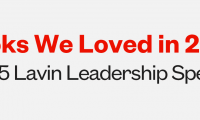Picture this: the year is 2050. The world’s population is approaching the 10 billion mark, and artificial intelligence, robots, and technological “personal assistants” have saturated the workforce. On the latest segment of ABC’s This Working Life, Martin Ford discusses whether there will be enough paid work to around in the future.
“The biggest impact, at least for the foreseeable future, is going to be on anything that’s routine, repetitive, and predictable,” explains Martin Ford, a consulting expert and the bestselling author of Rise of the Robots and Architects of Intelligence. “Predictable is maybe the best word to describe it because what I’m really talking about is any type of job where another person, for example, might be able to look at a record of what you’ve done and based on that, be able to learn how to do the job.”
Though this description does not characterize all of the work humans do, it could come to comprise up to half the jobs in the economy, according to Ford. This goes beyond the factory or low-wage jobs that many people think of when it comes to automation. In fact, even extraordinarily skilled jobs—like radiologists—are already being impacted by algorithms that are proving to be better than humans in certain areas.
If this is the case, then the questions become more complex: will we create more jobs than we destroy? If so, what will the new jobs look like? And what skills will they require? Ford dives deep into the incoming economical issues that will accompany an AI-enabled workforce, including the argument that we might work less in the future.
Listen to the full interview here.
To book Martin Ford for your next speaking event, contact The Lavin Agency and speak with one of our knowledgeable agents.















